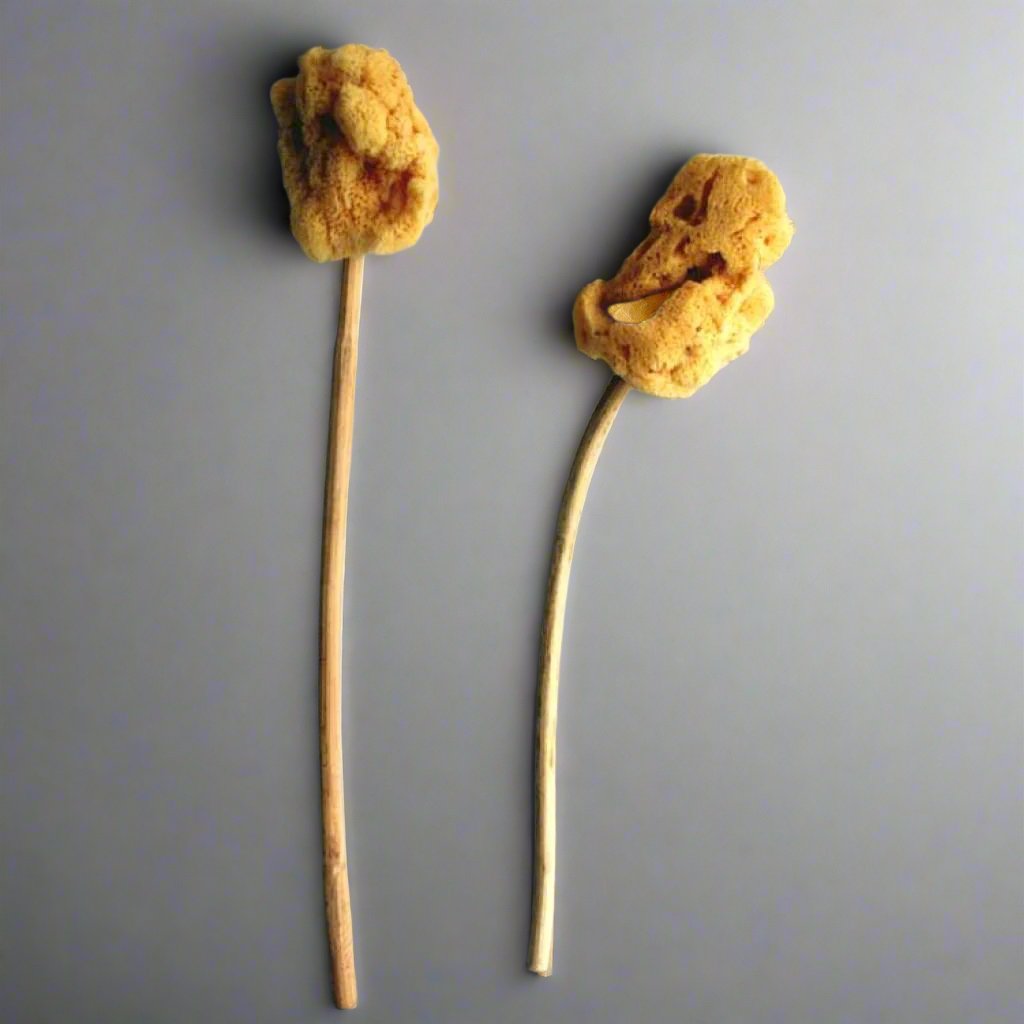Sponge on Stick
Sponge on Stick
Couldn't load pickup availability
This Sponge on a Stick is a replica of the Roman alternative to toilet paper. Natural sponges, which vary in shape and size, were used by the Romans for personal hygiene after using the toilet. Mounted on a stick for ease of use, this item provides a fascinating glimpse into the daily life and hygiene practices of ancient Rome.
Key Features:
- Material: Made from natural sponges, each with its own unique shape and texture.
- Size: The sponges vary in size, typically around 7cm - 10cm in diameter, attached to a simple wooden stick.
- Authenticity: The design is based on historical records and archaeological finds, offering an authentic representation of Roman hygiene tools.
- Functional: While this is a replica for display purposes, the sponge-on-a-stick was a practical tool in ancient Roman bathrooms.
Historical Context:
The Romans were known for their advanced public sanitation systems. In Roman toilets, a sponge on a stick was used to clean oneself after using the lavatory. The sponge was kept in a bucket of saltwater or vinegar for hygiene. This tool was used by both the wealthy and the common people, though it was primarily found in public bathhouses and latrines.
Educational Purpose:
- Roman Daily Life: A unique way to explore Roman hygiene practices and the evolution of sanitation.
- Ancient Rome: Ideal for teaching about Roman innovations in public health, including the construction of aqueducts and public latrines.
- Cultural Practices: A fascinating example of how different cultures approached personal hygiene in ancient times.
Ideal For:
- Classroom Learning: Perfect for engaging students in lessons on Roman history, daily life, and ancient technology.
- Museum Exhibits: An intriguing addition to collections related to Roman culture, public hygiene, and archaeological discoveries.
- Collectors of Roman Artefacts: A conversation starter and educational item for those interested in Roman replicas or ancient everyday objects.
This Sponge on a Stick offers a unique perspective on the practical tools used in ancient Roman society, highlighting their advancements in hygiene and daily living.



